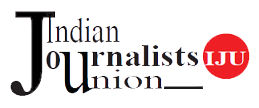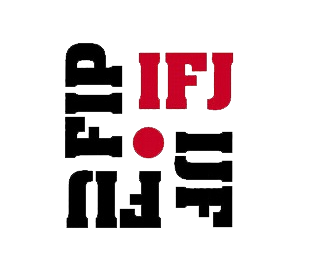Jan 2019 :While Southeast Asia has not exactly been known as a haven for press freedom and expression, the region has clearly become more dangerous for journalists as the risks they face escalate to unprecedented levels. From assassinations to random assaults by the public, from censorship by repressive regimes to social media bashing and flaming by "troll armies", the threats are real and persistent.
Of nearly 1,000 journalists and media workers from Cambodia, the Philippines, Malaysia, Thailand, Indonesia, Myanmar and Timor Leste surveyed by members of the Southeast Asia Journalist Unions (SEAJU) regional affiliates of the International Federation of Journalists (IFJ) - 81 per cent said the media situation in their countries had either seriously declined, worsened to some degree or had not changed at all. And Timor Leste, which gained independence in 1999, remains one of the more encouraging media spots in the region over the past decade. But by and large, journalists throughout the region said they felt more insecure and, worse, most felt they could not even count on their employers to help ensure their safety.
In fact, many saw their employers as part of the problem, citing poor wages and working conditions as the number one threat to their journalism, followed by censorship and being targeted for attacks because of their work. A common theme in the country reports of the SEAJU members is the open hostility even disdain - shown by most governments towards media. During a press conference in January last, Thai Prime Minister Prayut Chanocha, who led the 2014 military coup that ousted his predecessor yingluck Shinawatra, told reporters to direct questions "about heated politics" to a cardboard cut-out of himself and then gave a "rock star" devil's horn salute before walking away.
A month before he assumed office in mid-2016, Philippine President, Rodrigo Duterte, sent a clear message about what he thought of the media: "Just because you're a journalist you're not exempted from assassination if you're a son of a bitch." From then on, he has openly cursed and threatened not just individual journalists but news organisations he does not agree with, threatening to shut them down.
A crackdown by the Cambodian government on critical media before the July 2018 election was prefaced by a statement from the Foreign Ministry in February accusing media of reporting "irresponsibly and without ethical concerns." While the pressure eased slightly after the polls, more than half of the Cambodian journalists surveyed said the media climate had deteriorated, mainly because of state and political actors, as well as through government policy and legislation.
The initial hopes kindled in Myanmar by the landslide victory of Aung San Suu Kyi's National League for Democracy have since died as the country's government continues to press hard on dissent, jailing activists and journalists. The Nobel Peace laureate herself has come under intense criticism for her apparent disregard for basic rights, with several bodies stripping her of her honours.
It is telling that 49 per cent of journalists surveyed in Myanmar said the situation for them had worsened or seriously declined in the past year, with half blaming this on government policy and legislation. Half the respondents also described the culture of impunity in their country as near or at epidemic levels. And the world knows, of course, of the jailing of Reuters reporters Wa Lone and Kyaw Soe Oo for supposedly violating the draconian Official Secrets Act, a verdict widely believed to be punishment for their reporting on a massacre of Rohingya. While many see the departure from power of Najib as a sign of better days ahead, many Malaysian journalists remain wary of current Prime Minister Mahathir Mohammad's commitment to press freedom. As veteran journalist and former National Union of Journalists Secretary-General Bob Teoh noted, the "rot" in Malaysian media was started by Mahathir himself.
And while Timor Leste's four local dailies, two TV stations (one private, one government), and a number of private and government radio stations admittedly paint a robust picture of media in the tiny country of 1.2 million, extreme poverty, tensions over corruption and past partisan political violence continue to cast a shadow over journalism there. Thus, while the survey conducted by the Timor-Leste Press union showed 50% believe the situation for journalists has improved somewhat or significantly over the past year, they also said the fear of threats, physical violence and legal persecution remains high.
Of course, physical safety and the impunity with which journalists are killed and assaulted remains one of the main concerns in the region. The Philippines has seen 12 journalists murdered under Duterte's leadership, bringing the total slain in a country that continues to boast of having the freest press in Asia to 185 journalists since 1986. Except for a handful of half-solved cases - only the gunmen and none of the masterminds have been convicted - almost all the killings remain unsolved. Even the trial of the more than 100 suspects in the November 23, 2009, Ampatuan massacre, where 32 of the 58 victims were media workers, is yet to see a single conviction.
In Cambodia, only two of 13 journalist murders since 1994 have been resolved by the courts. Indonesian journalists, on the other hand, raised serious concerns about violence, especially "random physical attacks by the general public." With the growth of social media, online attacks and harassment have swiftly become a major concern for journalists in South East Asia. Filipino journalists, in particular, have been hard hit by what appear to be coordinated attacks by pro-government "troll armies."
In Thailand, computer crimes laws have been amended by the ruling military junta to silence criticism from both journalists and activists. But perhaps the most stunning revelation of the IFJ-SEAJu survey is how the most pervasive threats to both journalists and their profession are internal. When asked to name the main reasons why the media situation in their countries was in decline, 42 per cent of the respondents cited problems with ethics and professionalism, 41 per cent pointed to media ownership, and 33 per cent blamed government policy or legislation.
SEAJU and IFJ intend for this report to be used not only by journalist unions and media organisations but, just as importantly, by governments and civil society groups to craft programs and measures aimed at improving media safety and expanding freedom of the press and of expression in the region.



